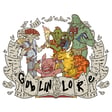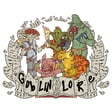
Episode 186: The Trevor Project
Hello, Podwalkers, and welcome back to another episode of the Goblin Lore Podcast! On today's episode we sat down with Nicholas Turton from the Trevor Project as part of their partnership with Wizards of the Coast for the Magic Con! Nicholas talks about his own Planeswalker Journey with Magic the Gathering as well as updates us about the research that has come out this year from the Trevor Project. Reminder the Cast will be at Magic Con Minneapolis this weekend! Come see our Panel Sunday at 11!
Again we would like to state that Black Lives Matter
We also are proud to have partnered with Grinding Coffee Co a black, LGBT+ affiliated and owned, coffee business that is aimed at providing coffee to gamers. You can read more about their mission here.
We also finally have a Linktree with all of our discounts/resources
____________________________________________
As promised, we keep Mental Health Links available every episode. But For general Mental Health the National Alliance on Mental Illness (NAMI) has great resources for people struggling with mental health concerns as well as their families. We also want to draw attention to this article on stigma from NAMI's site.
If you’re thinking about suicide or just need someone to talk to right now, you can get support from any of the resources below.
- National Suicide Prevention Lifeline: 988
- Veteran's can Press 1 at anytime to be taken to the Veteran's Line
- Crisis Text Line: Text HOME to 741-741
- International suicide hotlines: A comprehensive resource list for people outside the US.
- IMAlive: Click Chat Now to access a live online network of volunteers through instant messaging.
- TrevorLifeline, TrevorChat, and TrevorText (LGBTQ+ crisis support): 1-866-488-7386, or text “Trevor” to 1-202-304-1200
- Trans Lifeline (US): (877) 565-8860
____________________________________________
Opening and closing music by Wintergatan (@wintergatan). Logo art by Steven Raffael (@SteveRaffle)
Goblin Lore is proud to be presented by Hipsters of the Coast, and a part of their growing Vorthos content – as well as Magic content of all kinds. Check them out at hipstersofthecoast.com

